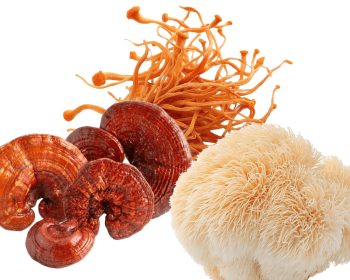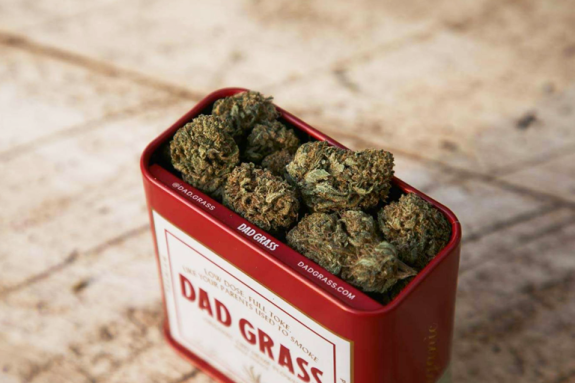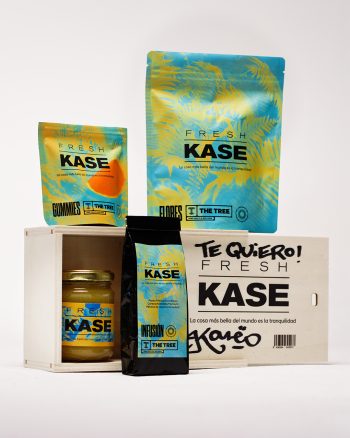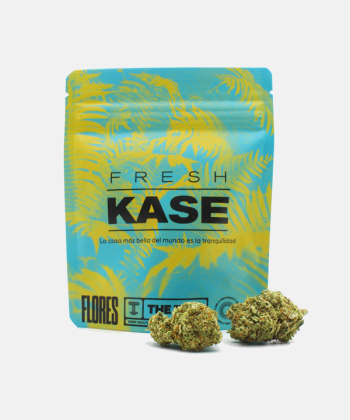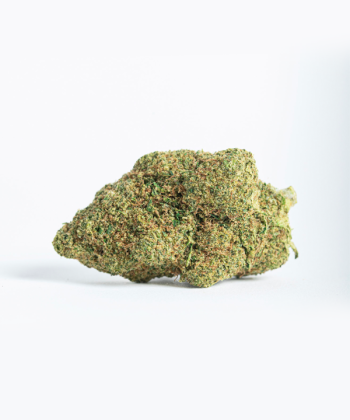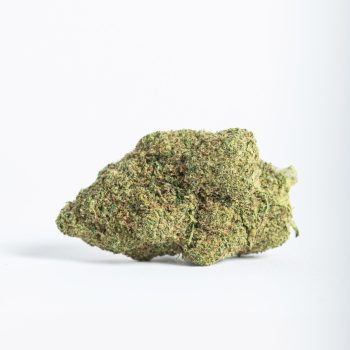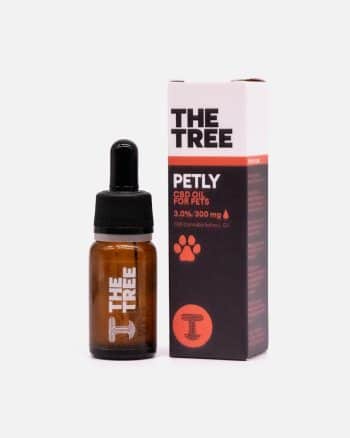Both THC (tetrahydrocannabinol) and CBD (cannabidiol) are two compounds produced by the cannabis plant. These are two of their best known active ingredients, and are also the ones they produce in the greatest quantities.
THC is also known to be the cannabinoid responsible for the psychotropic effects of marijuana, which produces it in large quantities. CBD, conversely, is mostly produced in the hemp plant, a species of cannabis in the same family that lacks these psychotropic effects, i.e. it doesn’t alter your perception.
How are THC and CBD related?
The relationship between THC and CBD is complex. Both cannabinoids share a fairly similar chemical structure, but have different properties and effects on the body.
THC binds to the CB1 receptors of the endocannabinoid system, or ECS, which causes the typical psychotropic effects of marijuana. CBD, meanwhile, binds to CB1 and CB2 receptors and can have anti-inflammatory¹ and analgesic² effects, among others.
One of the most notable benefits of CBD is that it has no psychotropic effects, which means that it doesn’t cause “highs” or “paranoia” like THC. For this reason, THC is illegal in many countries, where it’s considered a drug.
But plant biology and physiology aren’t so simple; marijuana also produces CBD and hemp produces THC. However, they produce them in very low quantities due to not being their main cannabinoids. For this reason, hemp-based products have a legal limit of 0.2% THC.
Do CBD products contain THC?
As explained in the previous paragraph, it’s clear that CBD products also contain a small amount of THC. While this isn’t always the case, there are several types of CBD products that contain a small percentage of THC. These are full spectrum oils, CBD sprays, CBD flowers, and CBD resins.
Full spectrum CBD products contain a hemp flower extract that retains all the plant’s cannabinoids, including THC. CBD flowers and CBD resins, on the other hand, are obtained directly from the plant, and therefore also retain all their components and therefore the THC.
However, the amount of THC is limited to the legally permitted 0.2%. In general, this is the maximum THC produced by the hemp plant, as specific strains have been created through crossbreeding that don’t exceed this legally established amount.
Are there any THC-free CBD products?
Yes, there are also CBD products that are completely free of THC. These are broad spectrum oils, CBD vape devices, and e-liquids with CBD. All of them have CBD, but no THC.
Broad spectrum oils contain all the cannabinoids of the plant except THC. In other words, apart from CBD, they include other cannabinoids such as CBN, CBG, CBC, and over 40 terpenes.
Moreover, CBD e-liquids and CBD vape devices contain CBD isolate extract. In other words, they only contain CBD, without any other cannabinoid or compound derived from cannabis, as pure CBD is used.
Why is there such a wide range of THC and non-THC products?
While CBD is a substance that has no psychotropic effects and is completely legal, THC is a controlled substance. This means that testing for THC levels is sometimes required.
When it comes to CBD products, there are no complications, as a few simple tests can determine that the THC level is within the legal limit. However, for CBD users, there may be some issues depending on the form of consumption.
In drug testing, as THC is the only potentially illegal derivative of cannabis, by-products of this cannabinoid are tested for. This means that these tests try to locate the substances into which this cannabinoid is transformed when it’s metabolised.
Can CBD products containing THC show up positive in a drug test?
THC and its metabolites are molecules that bind easily to fatty tissues and are released slowly. This could lead to a urine test having a positive result if you’ve consumed a very high amount of full spectrum CBD products.
Oral tests look for THC directly, so it’s exactly the same with them. If you’ve consumed excessive amounts of full spectrum CBD products orally, sublingually, or by inhaling them, there’s a risk that you could test positive.
Lastly, it’s worth remembering that in Europe CBD oil is only marketed for topical use. Therefore, oral or sublingual consumption is considered misuse of the product. Flowers are also considered an aromatic and collectible product, and therefore consuming them by inhalation is also misuse of this product.
Consequently, this scenario would only occur in countries where oral and sublingual consumption of CBD oil is allowed and the flowers can be inhaled. In Europe, the only legally permitted options for consuming CBD are e-liquids and vape pens that contain it, and which are generally completely free of THC.
References
- Burstein, S. (2015). Cannabidiol (CBD) and its analogs: a review of their effects on inflammation. Bioorganic & medicinal chemistry, 23(7), 1377-1385.
- Vučković, S., Srebro, D., Vujović, K. S., Vučetić, Č., & Prostran, M. (2018). Cannabinoids and pain: new insights from old molecules. Frontiers in pharmacology, 9, 1259.


